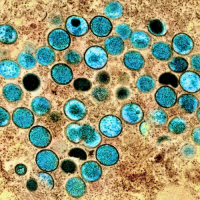It’s estimated that COVID-19 vaccines have saved millions of lives, but false claims continue to cast doubt on their safety and efficacy. One such claim that has spread around the world falsely suggests that three Canadian doctors died from the shots. But they each died of a long-term illness unrelated to the vaccines.
SciCheck
FactCheck.org’s SciCheck feature focuses exclusively on false and misleading scientific claims that are made by partisans to influence public policy. It was launched in January 2015 with a grant from the Stanton Foundation. The foundation was founded by the late Frank Stanton, president of CBS for 25 years, from 1946 to 1971.
Misrepresentation of Germany’s Data on Unverified COVID-19 Vaccine Side Effects
Viral claims have repeatedly misrepresented unverified data from a U.S. vaccine safety system that encourages reports of any potential side effects — whether they’re likely to be caused by the vaccine or not. Now we’re seeing the same phenomenon with a similar system in Germany. Some have wrongly claimed Germany found the COVID-19 vaccine caused “serious side effects” in a large number of people.
‘Unequivocal’ Evidence that Humans Cause Climate Change, Contrary to Posts of Old Video
There is “unequivocal” evidence that humans are causing global warming, the U.N. climate change panel has said. But viral posts revive a 2014 video of Weather Channel co-founder John Coleman falsely claiming “climate change is not happening.” The channel, which supports the scientific consensus that climate change is real, had distanced itself from Coleman.
COVID-19 Vaccination Increases Immunity, Contrary to Immune Suppression Claims
Posts Distort Chinese Research Creating Fragment of Monkeypox Viral Genome
A Wuhan Institute of Virology study describes assembling part of a monkeypox viral genome for use in a diagnostic test. Although the researchers only made a fraction of the genome — and it matches a different version of the virus — social media posts are using the study to baselessly claim that the current monkeypox outbreak is a result of a lab leak.
Faulty Research Paper Leads to Unfounded Claims About Health of Atlantic Ocean
Video Revives Old, Debunked Rumors About Tetanus Vaccines
Posts Misleadingly Omit Critical Data Supporting COVID-19 Vaccines for Youngest Kids
In young children, the Pfizer/BioNTech and Moderna COVID-19 vaccines are expected to primarily protect against severe disease. Both shots successfully met the set benchmarks for vaccine effectiveness, which involved comparing antibody responses to those of adults. Online posts critical of government recommendations for the pediatric vaccines, however, fail to mention these essential data.









